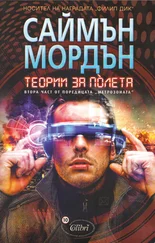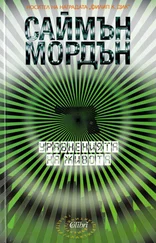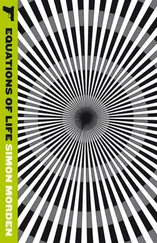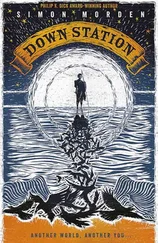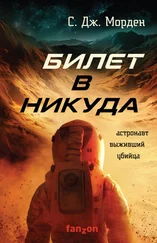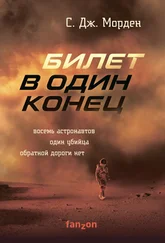She spent a day listening and waiting.
By day seven her last sip of water was gone. No one on the ship had moved within range of her hearing for twenty four hours. She sucked on a plastic tab she ripped off the environment suit until she worked up some saliva, then she started yelling. She yelled herself hoarse.
No one came.
By day eight, she was ready to be shot. She’d been out of water for two days, and her waste bag had been full for four. She put her shoulders against the back wall of the locker and planted her hands against the side walls. Then she kicked out with both legs as hard as she could. The cramps that followed the first kick almost made her pass out. She screamed instead.
Stupid girl, she told herself. She was dehydrated. Eight days without activity was more than enough to start atrophy. At least she should have stretched out.
She massaged her stiff muscles until the knots were gone, then stretched, focusing her mind like she was back in dojo. When she was in control of her body, she kicked again. And again. And again, until light started to show through the edges of the locker. And again until the door was so bent that the three hinges and the locking bolt were the only points of contact between it and the frame.
And one last time so that it bent far enough that the bolt was no longer seated in the hasp and the door swung free.
Julie bolted from the locker, hands half raised, ready to look either threatening or terrified depending on which seemed more useful.
There was no one on the whole deck level: airlock, the suit storage room where she’d spent the last eight days, a half dozen other storage rooms. All empty. She plucked a magnetized pipe wrench of suitable size for skull cracking out of an EVA kit, then went down the crew ladder to the deck below.
And then the one below that, and then the one below that. Personnel cabins in crisp, almost military order. Commissary where there were signs of a struggle. Medical bay, empty. Torpedo bay. No one. The comm station was unmanned, powered down, and locked. The few sensor logs that still streamed showed no sign of the Scopuli. A new dread knotted her gut. Deck after deck and room after room empty of life. Something had happened. A radiation leak. Poison in the air. Something that had forced an evacuation. She wondered if she’d be able to fly the ship by herself.
But if they’d evacuated, she’d have heard them going out the airlock, wouldn’t she?
She reached the final deck hatch, the one that led into engineering, and stopped when the hatch didn’t open automatically. A red light on the lock panel showed that the room had been sealed from the inside. She thought again about radiation or major failures. But if that were the case, why lock the door from the inside? And she had passed wall panel after wall panel. None of them had been flashing any warnings of any kind. No, not radiation, something else.
There was more disruption here. Blood. Tools and containers in disarray. Whatever had happened, it had happened here.
It took two hours with a torch and prying tools from the machine shop to cut through. With the hydraulics compromised, she had to crank the hatch open by hand. A gust of warm wet air blew out, carrying a hospital scent without the antiseptic. A coppery, nauseating smell. The torture chamber, then. Her friends would be inside, beaten or cut to pieces. Julie hefted her wrench and prepared to bust at least one head open before they killed her. She floated down.
The engineering deck was huge, vaulted like a cathedral. The fusion reactor dominated the central space. Something was wrong with it. Where she expected to see readouts, shielding, and monitors, a layer of something like mud seemed to flow over the reactor core. Slowly, Julie floated toward it, one hand still on the ladder. The strange smell became overpowering.
The mud caked around the reactor had structure to it like nothing she’d seen before. Tubes ran through it like veins or airways. Parts of it pulsed. Not mud, then.
Flesh.
An outcropping of the thing shifted toward her. In comparison to the whole it seemed no larger than a toe, a little finger. It was Captain Darren’s head.
“Help me,” it said.
Samuil Petrovitch Novels
Equations of Life
Theories of Flight
Degrees of Freedom
Praise for Equations of Life :
“Morden has got hold of the comfortable old beta-tested cyberpunk genre by the scruff of its digital neck and released it in a smooth alpha version ready to take on all comers in the new age. I never thought I’d want to know what happens next to a smart-mouth anti-hero heart-attack victim in a ruined Metrozone city—but I do.”
—Peter F. Hamilton
This book is a work of fiction. Names, characters, places, and incidents are the product of the author’s imagination or are used fictitiously. Any resemblance to actual events, locales, or persons, living or dead, is coincidental.
Copyright © 2011 by Simon Morden
Excerpt from Leviathan Wakes copyright © 2011 by James S.A. Corey
All rights reserved. Except as permitted under the U.S. Copyright Act of 1976, no part of this publication may be reproduced, distributed, or transmitted in any form or by any means, or stored in a database or retrieval system, without the prior written permission of the publisher.
Orbit
Hachette Book Group
237 Park Avenue
New York, NY 10017
Visit our website at www.HachetteBookGroup.com
www.orbitbooks.net
Orbit is an imprint of Hachette Book Group. The Orbit name and logo are trademarks of Little, Brown Book Group Limited.
The publisher is not responsible for websites (or their content) that are not owned by the publisher.
First eBook Edition: June 2011
ISBN: 978-0-316-13429-3

![Саймон Морден - Билет в никуда [litres]](/books/388091/sajmon-morden-bilet-v-nikuda-litres-thumb.webp)
![Саймон Морден - Билет в один конец [litres]](/books/395533/sajmon-morden-bilet-v-odin-konec-litres-thumb.webp)

